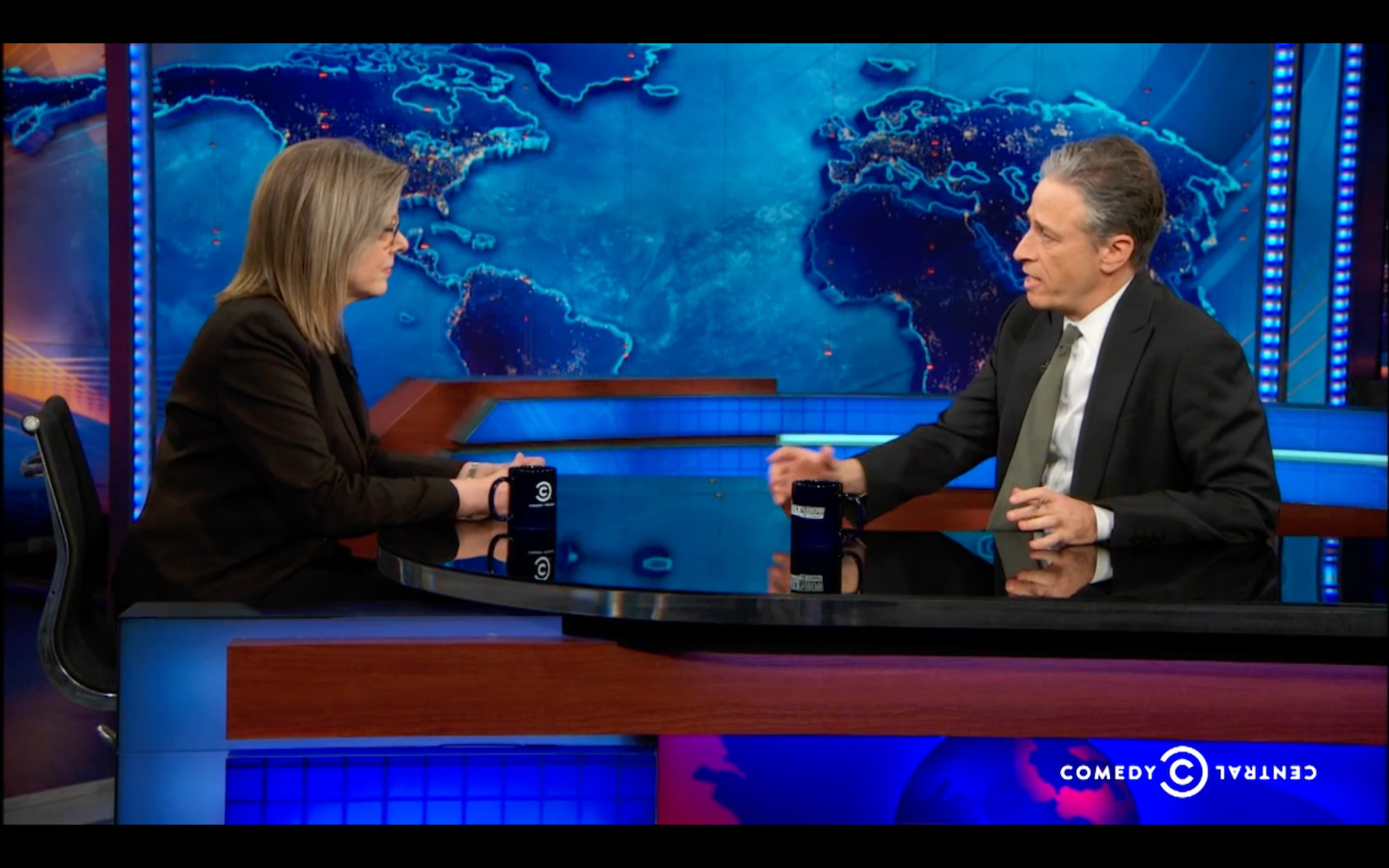For 26 years, Kimberly Marten has taught at Barnard and still remembers the interview process and one of the major factors that influenced her decision to join the faculty — the students.
“I was just wowed by them, hearing them speak and seeing how engaged they were,” said Marten. “It made me realize that here’s a place that I’d be happy and here’s the place [where] I could really make a difference because I would be with a really engaged intellectual community of students.”
Marten has a long list of credentials. She is a faculty member and executive committee member at both Columbia’s Harriman Institute for Russian, Eurasian, and East European Studies and the Arnold A. Saltzman Institute of War and Peace Studies. She’s a member of the Council on Foreign Relations (CFR) and the International Institute for Strategic Studies. She’s also served on two bipartisan independent CFR task forces: on U.S. policy in the Arctic and on cybersecurity and U.S. foreign policy. As an author, Marten has published several books on international security, foreign policy, and Russia.
Her interest in Russia began when she was in fifth grade in Minnesota. Her father — a now-retired scientist for the federal government working on agronomy and plant breeding issues — took a trip to what was then the Soviet Union. “He came back with these stories about how they were followed everywhere and about the real cultural diversity inside the Soviet Union,” said Marten. She was hooked. When she studied at Harvard as an undergraduate, she majored in government.
It made me realize that here’s a place that I’d be happy and here’s the place [where] I could really make a difference because I would be with a really engaged intellectual community of students.
Lately, Marten is an increasingly familiar presence in the news media and on Capitol Hill because of her deep knowledge of Russia’s Wagner Group, a “private” military company, and its recently deceased founder and leader, Yevgeny Prigozhin. Her insightful observations on the war in Ukraine, Prigozhin’s rebellion against Russian President Vladimir Putin, and Prigozhin’s death in a plane crash two months later have landed her in newspapers, on television, radio, podcasts, and before the U.S. Congress.
“[Speaking to Congress] was just an incredible honor,” said Marten, who recalled researching congressional transcripts as a high school student on the debate team. “I never imagined I would actually ever be giving congressional testimony.”
Marten’s expertise has helped to make sense of the reported mutiny mounted against Putin by Prigozhin.
“Some analysts have said that Prigozhin tried to launch a coup. He didn’t. He was trying to create changes in the Kremlin,” explained Marten. “He apparently believed that if his [protest] march continued, Putin would have to listen to him and would replace the defense minister and the person who was in charge of the command of Russian forces, the Chief of the General Staff. It was naïve of Prigozhin.”
Marten believes — now, more than 19 months after Russia invaded Ukraine — Putin’s range of strategic options is narrow.
“Putin’s next move is to stay the course,” said Marten. “I don’t think anybody believes that the war in Ukraine is going to end as long as Putin is alive and in power. He’s made it too much a part of his legacy to be willing to backtrack and say it was a mistake. He has no incentive to make any major changes at all.”
Ukrainian President Volodymyr Zelensky delivered a dramatic speech during last month’s U.N. General Assembly, urging a global front against Russian aggression. Marten agrees with Zelensky’s assertion that supporting Ukraine is crucial to the security of the West.
“The United States has become extraordinarily important as the bulwark of Ukraine. If Putin gains territory through this use of violence, it will encourage him that he made the right decision and that, therefore, he should keep on going in a similar way,” said Marten. “If the United States ends up not having the will to continue to support Ukraine significantly, Ukraine cannot continue to fight against Russia.”
She said this raises the stakes around the 2024 U.S. presidential election — specifically, if former President Donald Trump is reelected. “If Trump wins the election, he will try to walk back U.S. assistance to Ukraine,” said Marten.
Also among Marten’s areas of expertise is global climate change, and she is teaching two courses this fall semester that address aspects of the dynamics and decisions around global warming: Colloquium on the Politics of the Arctic and The Global Politics of Climate Change.
Her opinions and analysis remain in high demand. From CNN to PBS NewsHour, Marten continues answering questions posed by top journalists. That’s not to say media appearances are new to Marten. In 2014, she appeared on Jon Stewart’s The Daily Show and called it one of her favorite interviews. “I never thought that would be possible,” said Marten. “And it was such a kick, such a wow experience.”
For more from Marten:
- Professor Kimberly Marten Examines Russian Paramilitary Groups as Part of Brookings Event, October 5, 2023
- Prof. Kimberly Marten on Why the Wagner Group Cannot Be Easily Absorbed by the Russian Military, September 1, 2023, Russia Matters
- Prof. Kimberly Marten on the Explanation Behind Yevgeny Prigozhin’s Death, August 25, 2023, Forbes Breaking News
